Fritextsökning
Artiklar per år
Innehållstyper
-

Hypothesis testing versus conspiracy theory
"How do you know what is a conspiracy theory and what is a reasonable, scientifically based conclusion?" In a column, Ingrid Lönnstedt reflects on this question.
-

Joy at Egetis after positive CHMP opinion – ”The single most important milestone”
Stockholm-based Egetis Therapeutics has received a positive CHMP opinion for Emcitate, which could become the first approved treatment for the rare disease MCT8 deficiency."
-

Lilly recruits top Swedish researcher in Alzheimer´s
One of Sweden's leading Alzheimer's researchers, Oskar Hansson, has been recruited by pharma giant Eli Lilly and will be moving to the USA.
-

“Research is always a lot of failures and a few successes”
Gene therapies open up fantastic possibilities, but they are also extremely expensive to produce. Genenova aims to change that and make the treatments accessible to more people. “Our overall ambition is to reduce costs a hundredfold”, says professor Johan Rockberg at KTH Royal Institute of Technology in Stockholm.
-

Medivir CEO on upcoming study: ”It's about working together with others”
Medivir is a small company with a big task: to take its drug candidate, via extensive clinical studies, all the way to a patient group that currently lacks approved treatment alternatives. "We can't do that on our own – our entire R&D activities are about working together with others," says the company's CEO Jens Lindberg.
-

Xbrane enters licensing agreement with Indian generics giant
Swedish biosimilar developer Xbrane Biopharma and the Indian company Intas Pharmaceuticals have entered into a license and co-development agreement.
-
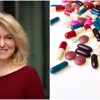
Drug development booms in Medicon Valley
When it comes to developing new medicines, the Öresund region is one of the top performers in the EU. Companies working on commission for pharmaceutical companies are highlighted as a success factor. “Everyone has heard of Novo Nordisk, but these companies are unknown to people outside the industry despite being the golden vein of the life science sector,” says Anette Steenberg, CEO of the cluster organisation MVA.
-
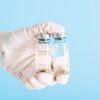
Roche’s Genentech terminates licencing deal with Norwegian biotech
Genentech is ending a license collaboration with Norwegian biotech Nykode Therapeutics regarding a clinical stage cancer vaccine program.
-

AZ gets approval for drug targeting rare disease – it may reduce cortisone dependence
AstraZeneca’s drug Fasenra gets an expanded indication in the EU and is now approved as a treatment for the rare autoimmune disease known as Churg-Strauss syndrome.
-

”The importance of stratification in a statistician’s August kitchen”
Ingrid Lönnstedt writes about an experiment of her own at home and about what lessons can be learned from it, in a science column.
-
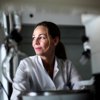
Her company is developing a new tablet form obesity drug
Obesity and diabetes are the primary targets of a new tablet treatment under development by Malmö-based Pila Pharma. The company’s ambition is to take on the billion-selling GLP1 analogues. ‘‘Basically, I expect all the beneficial effects that they have
-

GSK pays 2.2 billion dollars to settle Zantac lawsuits
British drugmaker Glaxo Smith Kline, GSK, has struck a 2.2 billion dollar settlement, thereby resolving a vast majority of the liability cases pending against the company in the U.S. that alleged its discontinued drug Zantac caused cancer.
-

Tre forskare får Nobelpriset i kemi 2024
Årets Nobelpris i kemi går till David Baker, Demi Hassabis och John M. Jumper för att ha lyckats bygga nya proteiner och förutspå proteiners komplexa struktur.
-

AstraZeneca to use American AI platform for cancer trials
In a collaboration AstraZeneca will use an AI model from Israeli-American biotech Immunai to streamline its clinical trials in cancer.
-

Sectra får kanadensisk miljardorder
Det Linköpingsbaserade medtechbolaget Sectra ska förse alla offentliga sjukhus i provinsen Québec i Kanada med sin helhetslösning för medicinsk bildhantering. Ordervärdet är 405,5 miljoner kanadensiska dollar, motsvarande drygt 3 miljarder kronor.
-
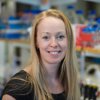
An increasing number of people are falling ill with TBE – “Much more research is needed”
Tick-borne meningitis, or TBE, is an increasingly common disease in Sweden. Currently, there is a vaccine against the disease but no drugs. Researcher Anna Överby Wernstedt is studying the processes that occur in the brain during a TBE infection and hopes to contribute to developing a treatment.
-

Obesity-drug pioneers win Lasker Award
This year’s Lasker Prize in Clinical Research has been awarded to three researchers for their discoveries in GLP-1-based drugs that, according to the jury, “have revolutionised the treatment of obesity”. Among others, Novo Nordisk’s Lotte Bjerre Knudsen
-

Anna Törner: ”Mom, do you think you’ll ever get married again?”
”I realize I’m slowly descending into that familiar statistical rabbit hole, where life’s biggest uncertainties are reduced to point estimates and confidence intervals”, Anna Törner writes in a column.
-

Sobi announces agreement with Enable Injections
Swedish biopharma Sobi has entered into an international development and distribution agreement with US drug delivery company Enable Injections.
-
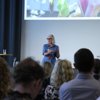
Artificial intelligence in radiology – “Risk prediction is very exciting”
A growing number of solutions based on artificial intelligence are being developed and used in healthcare. According to Sophia Zackrisson, Professor of Radiology at Lund University, radiology is a field that is well suited to the technology.
-

Setback for pharmaceutical companies in the Zantac case
A Delaware judge has ruled in favour of allowing expert witnesses to testify in a case involving the now-cancelled drug Zantac and its potential carcinogenicity.
-

Sofia Wallström is Lif's new CEO
Sofia Wallström has been appointed as the new CEO of the industry organization Lif, the trade association for the research-based pharmaceutical industry in Sweden.
-

Innovative start-up helps doctors, scientists and industry balance coagulation risks
For many doctors caring for seriously ill patients, for example, in stroke units and cancer wards, maintaining the life-saving balance between bleeding and thrombosis is an ongoing challenge. In the late 1980s, scientists at Maastricht University in the Netherlands developed an innovative method, the thrombin generation assay (TGA), which provides a complete overview of a physiological process crucial for maintaining normal haemostasis.
-

Samuel Lagercrantz: “Companies that do this successfully will take the lead”
The development of new medicines and medical technologies should not focus too narrowly on prolonging life. It is equally important to develop treatments that relieve pain or eliminate painful symptoms, writes Samuel Lagercrantz in an editorial.